
Fürstensteig: Liechtenstein's Majestic Mountain Path
Fürstensteig is a famous mountain trail in Liechtenstein that offers spectacular views and a thrilling hiking experience. Located in the Rätikon mountain range, this path takes you through steep cliffs and rugged terrain, making it a favorite among experienced hikers and adventure enthusiasts. The trail starts near Gaflei and winds its way up to the Drei Schwestern peaks, offering breathtaking panoramic views of the Swiss and Austrian Alps. The hike is about 6 kilometers long and can take around 4 to 5 hours to complete. Along the way, you will encounter narrow passages and metal ladders that add to the excitement. The trail is well-marked and maintained, ensuring a safe yet exhilarating journey. As you ascend, you'll be treated to stunning vistas of the Rhine Valley below and the impressive mountain ranges surrounding you. Fürstensteig is not just about the hike; it is also about the natural beauty and tranquility of the area. The trail is surrounded by diverse flora and fauna, with wildflowers dotting the landscape and the occasional sighting of mountain goats. The peaceful atmosphere and the sense of accomplishment upon reaching the summit make this hike a truly unforgettable experience.
Local tips in Fürstensteig
- Wear sturdy hiking boots and bring trekking poles for better stability.
- Check the weather forecast before you go, as the trail can be dangerous in bad weather.
- Start early in the morning to avoid crowds and to have ample time for the hike.
- Carry enough water and snacks, as there are no facilities along the trail.
- Consider a guided tour if you are not an experienced hiker.
- Bring a camera to capture the stunning views along the way.
Fürstensteig: Liechtenstein's Majestic Mountain Path
Fürstensteig is a famous mountain trail in Liechtenstein that offers spectacular views and a thrilling hiking experience. Located in the Rätikon mountain range, this path takes you through steep cliffs and rugged terrain, making it a favorite among experienced hikers and adventure enthusiasts. The trail starts near Gaflei and winds its way up to the Drei Schwestern peaks, offering breathtaking panoramic views of the Swiss and Austrian Alps. The hike is about 6 kilometers long and can take around 4 to 5 hours to complete. Along the way, you will encounter narrow passages and metal ladders that add to the excitement. The trail is well-marked and maintained, ensuring a safe yet exhilarating journey. As you ascend, you'll be treated to stunning vistas of the Rhine Valley below and the impressive mountain ranges surrounding you. Fürstensteig is not just about the hike; it is also about the natural beauty and tranquility of the area. The trail is surrounded by diverse flora and fauna, with wildflowers dotting the landscape and the occasional sighting of mountain goats. The peaceful atmosphere and the sense of accomplishment upon reaching the summit make this hike a truly unforgettable experience.
When is the best time to go to Fürstensteig?
Iconic landmarks you can’t miss
Vaduz Castle
Experience the grandeur of Vaduz Castle, a historic gem in Liechtenstein offering stunning views and rich cultural heritage.
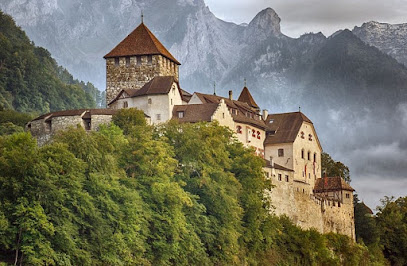
Kathedrale St. Florin
Explore the breathtaking Kathedrale St. Florin in Vaduz, a stunning example of neo-Gothic architecture and a serene place for reflection and worship.
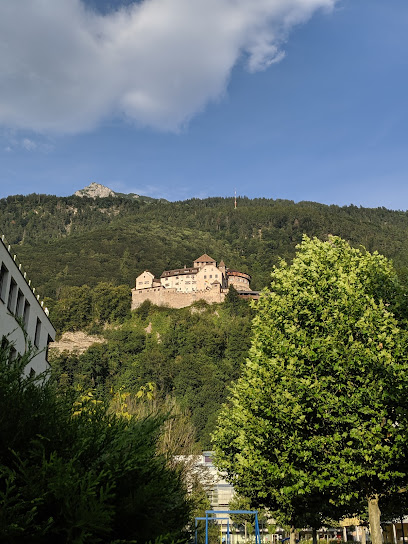
Liechtenstein Center
Explore Liechtenstein's captivating culture and stunning landscapes at the Liechtenstein Center, your ultimate tourist information hub in Vaduz.
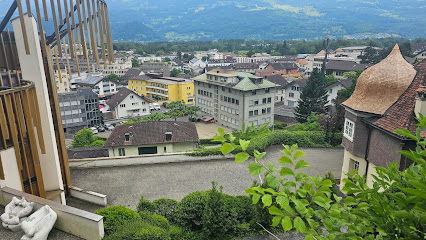
Vaduz Citytrain AG
Discover the stunning landscapes and rich history of Vaduz with the Citytrain, your gateway to exploring Liechtenstein's capital.
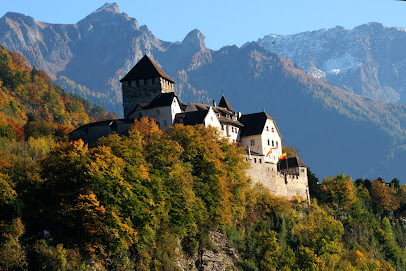
Alte Rheinbrücke
Explore the Alte Rheinbrücke, a stunning bridge connecting Switzerland and Liechtenstein, offering breathtaking views and rich history.
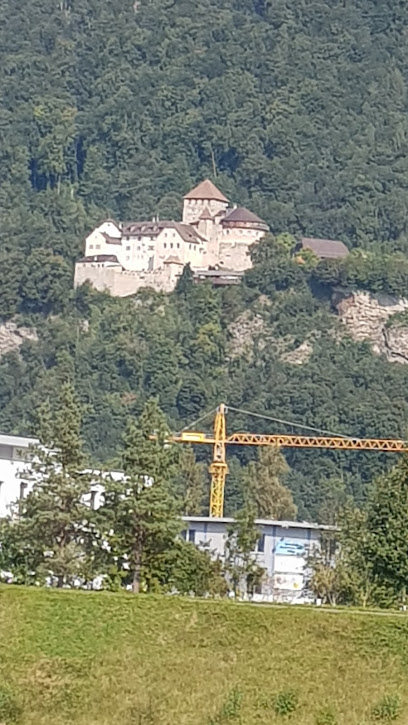
Rheinpark Stadium
Discover the heart of Vaduz sports culture at Rheinpark Stadium, where thrilling matches and breathtaking views create unforgettable experiences.
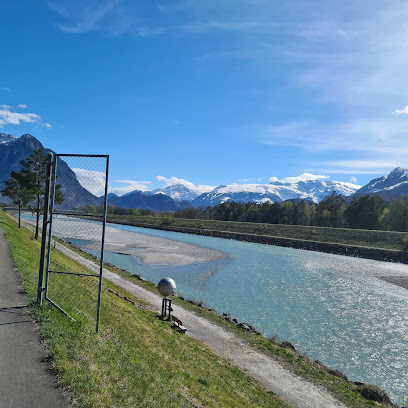
Kunstmuseum Liechtenstein
Discover the vibrant world of contemporary art at Kunstmuseum Liechtenstein, where creativity meets culture in the heart of Vaduz.
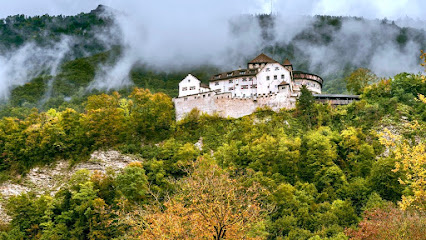
New Castle
Discover the culinary treasures of Vaduz at New Castle, where local flavors meet international cuisine in a charming setting.
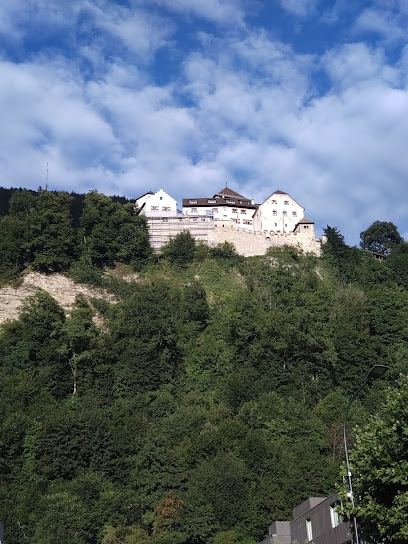
Brasserie Burg
Discover Brasserie Burg in Vaduz: a perfect blend of gourmet hamburgers and Italian cuisine in a cozy European brasserie setting.
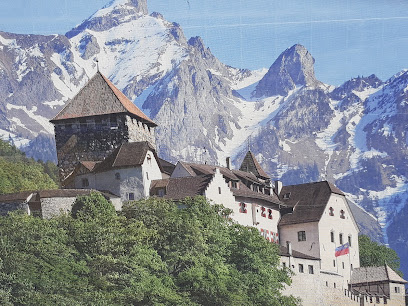
Berggasthaus Masescha
Discover Berggasthaus Masescha in Triesenberg, where breathtaking views meet delightful local cuisine in a cozy alpine setting.
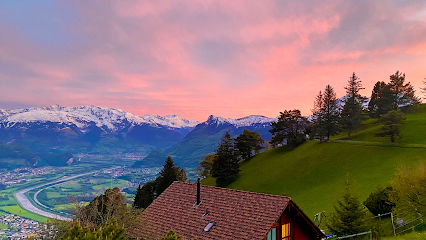
Vogelparadies Birka
Explore Vogelparadies Birka, an enchanting animal park in Mauren, Liechtenstein, dedicated to the beauty and conservation of birds from around the world.
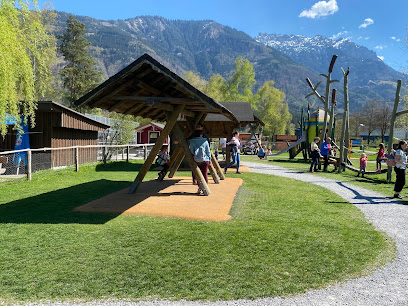
Schlössle Mahal
Discover the vibrant flavors of India at Schlössle Mahal in Vaduz, where authentic cuisine meets a warm and inviting atmosphere.
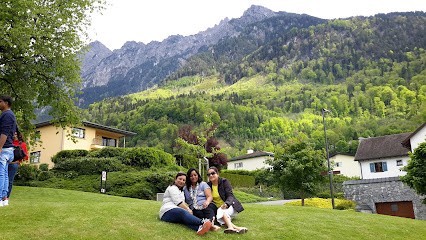
Jugendherberge Schaan-Vaduz
Discover the charm of Liechtenstein at Jugendherberge Schaan-Vaduz, a cozy youth hostel offering comfort, community, and adventure in a stunning natural setting.
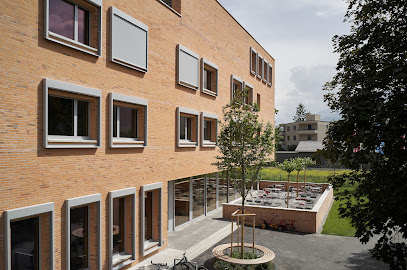
Liechtensteinisches LandesMuseum
Explore the rich cultural heritage of Liechtenstein at the Liechtensteinisches LandesMuseum, where history and art come alive in a stunning setting.
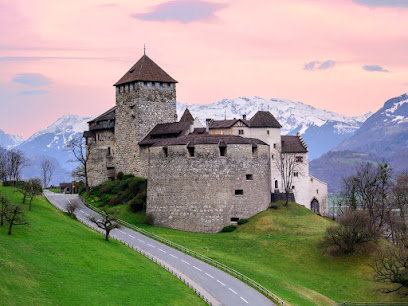
Adler
Discover authentic Swiss flavors at Adler in Vaduz, where traditional cuisine meets warm hospitality in a charming setting.
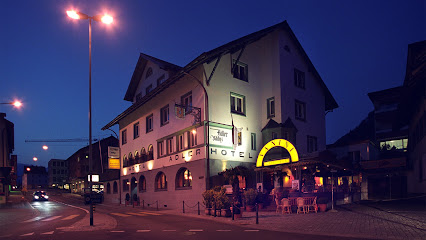
Unmissable attractions to see
Heididorf
Step into Heidi's world in Maienfeld: An immersive journey through the classic Swiss story and stunning Alpine scenery.
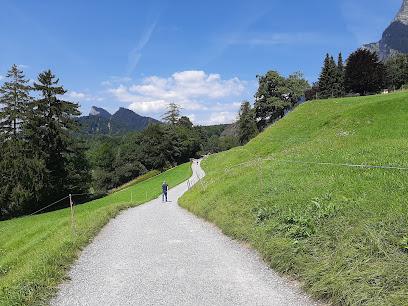
Burg Gutenberg
Explore Gutenberg Castle in Balzers, Liechtenstein: a medieval fortress with stunning views, rich history, and cultural events.
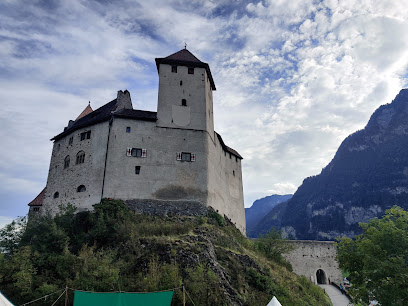
Alte Rheinbrücke
Walk or cycle across the historic Alte Rheinbrücke, a charming wooden bridge connecting Switzerland and Liechtenstein with scenic Rhine River views.
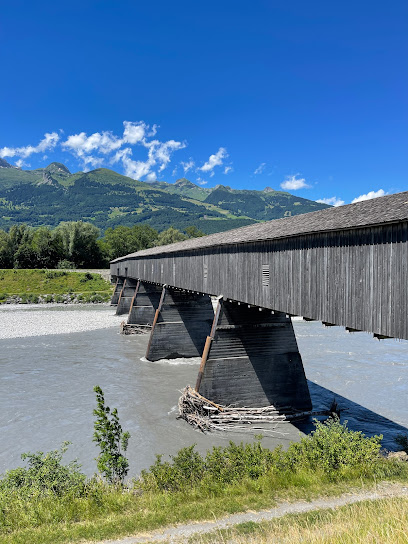
Obere Burg
Explore the ruins of Obere Burg in Schellenberg, Liechtenstein, for a free and fascinating journey into the country's medieval past.
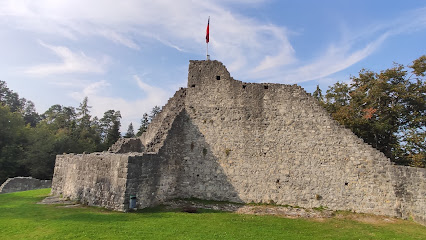
Postmuseum Vaduz
Explore Liechtenstein's postal history through its exquisite stamp collection at the Postmuseum Vaduz, a cultural gem in the heart of the capital.
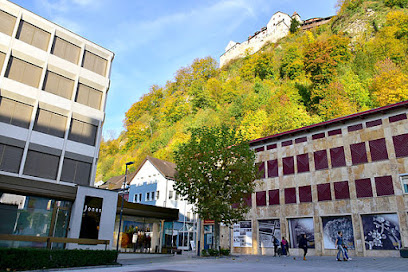
Red House, Vaduz
Discover the Red House in Vaduz, a striking historical landmark with a rich architectural heritage and picturesque vineyard setting.
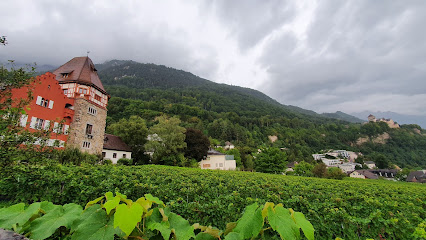
Gafleisattel
Discover Gafleisattel: breathtaking hiking trails, stunning panoramic views, and a serene escape in the heart of Liechtenstein's natural beauty.
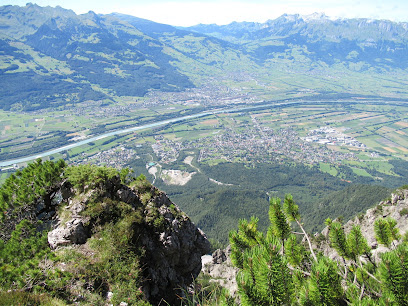
Naturpark Haberfeld
Escape to Naturpark Haberfeld in Vaduz: A tranquil retreat with scenic trails, diverse wildlife, and serene picnic spots for nature lovers.
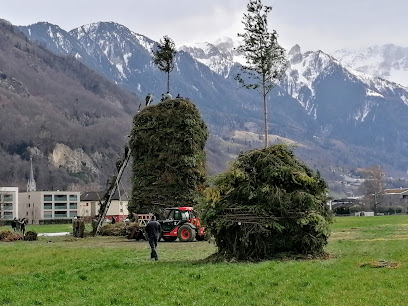
Rope Park in the Forest
Experience thrilling treetop adventures at Rope Park in the Forest, an exhilarating amusement park in Triesen, Liechtenstein. Fun for all ages!
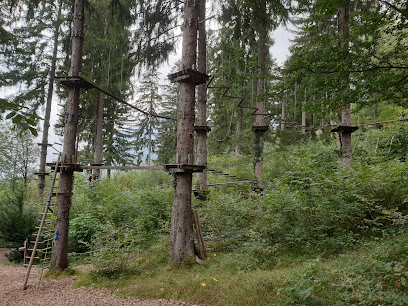
Chemi
Explore Chemi's scenic hiking trails in Silum, Liechtenstein, for breathtaking views and an unforgettable Alpine experience.
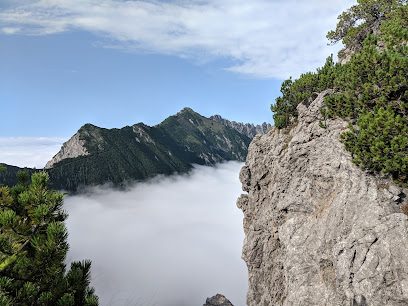
Bärgällasattel
Discover Bärgällasattel: Liechtenstein's hiking paradise with panoramic views, diverse trails, and serene alpine beauty in the heart of Silum.
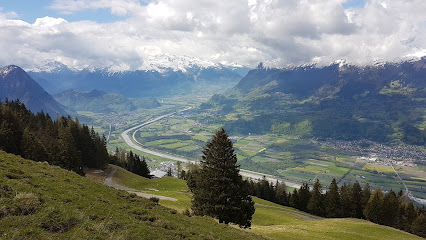
Wiaga Tunnel (alter Tunnel Steg)
Discover the historic Wiaga Tunnel in Triesenberg, Liechtenstein: a blend of engineering marvel and natural beauty. Perfect for history and nature lovers.
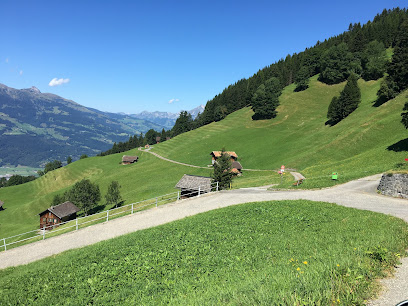
Walsermuseum
Explore the unique heritage of the Walser people at this cultural museum in Triesenberg, Liechtenstein. Discover their history, traditions, and way of life.
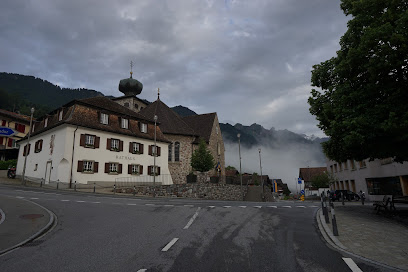
Sitzbank in der Höhe mit sehr schöner Aussicht auf das Rheintal
Breathtaking Rhine Valley views await from this serene bench in Triesenberg, Liechtenstein. A perfect spot for reflection and natural beauty.
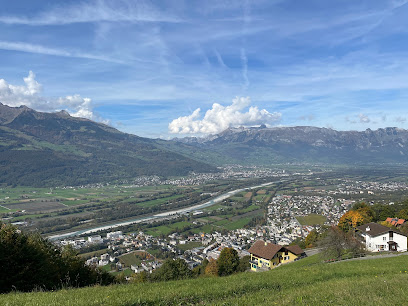
Tüüfelstaa
Explore Tüürfelstaa in Triesen – a stunning tourist attraction offering breathtaking views and tranquil nature trails in picturesque Liechtenstein.
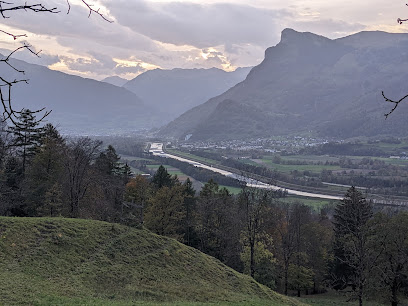
Essential places to dine
New Castle
Experience the best of Liechtenstein's culinary scene at New Castle in Vaduz - where authentic flavors meet cozy ambiance.
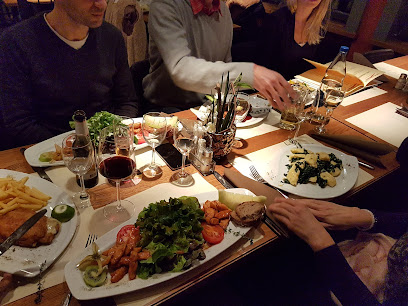
Brasserie Burg
Discover Brasserie Burg in Vaduz: A delightful fusion of flavors offering Italian classics and gourmet burgers in an inviting atmosphere.
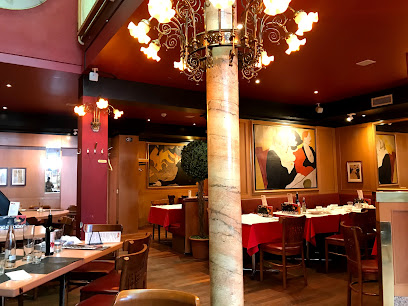
Berggasthaus Masescha
Discover authentic local cuisine and breathtaking alpine views at Berggasthaus Masescha in Triesenberg, Liechtenstein.
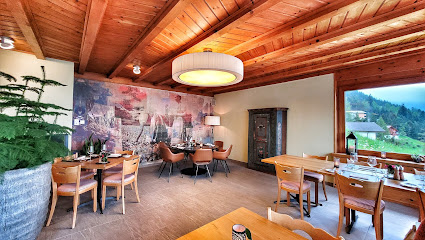
Adler
Experience authentic Swiss cuisine at Adler in Vaduz – where tradition meets taste in an inviting atmosphere.
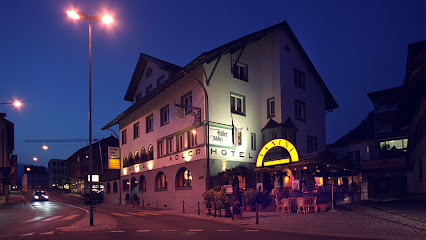
Landgasthof Au
Experience authentic Liechtenstein cuisine at Landgasthof Au in Vaduz – where tradition meets taste in a cozy setting.
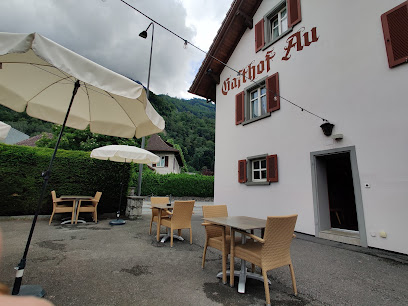
Kainer
Discover Kainer: A unique gastropub experience in Triesenberg offering local flavors amidst stunning mountain scenery.

Torkel
Experience authentic Swiss cuisine at Torkel in Vaduz – a culinary gem offering traditional dishes and local wines amidst charming surroundings.
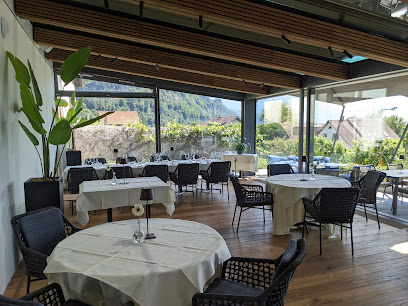
Edelweiss
Experience authentic Swiss cuisine at Edelweiss in Triesenberg - where every dish tells a story of Alpine tradition and flavor.
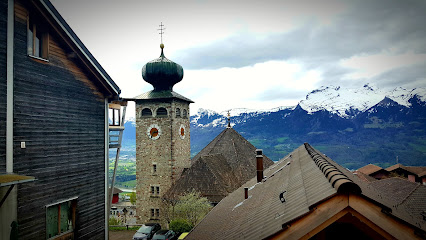
Gitzihöll
Experience authentic pizza in Malbun at Gitzihöll – where local flavors meet traditional recipes amidst breathtaking Alpine views.
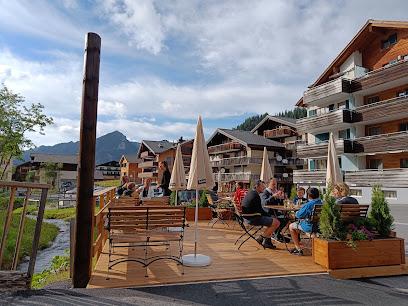
Cafe Restaurant Engel Asian & Local
Experience the best of Asian and local cuisine at Café Restaurant Engel in Vaduz – where taste meets tradition.
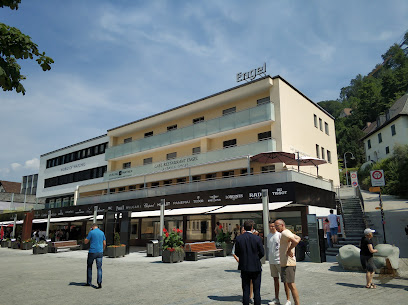
Restaurant Schäfle
Discover the exquisite flavors of Liechtenstein at Restaurant Schäfle - where tradition meets modern cuisine in a cozy atmosphere.
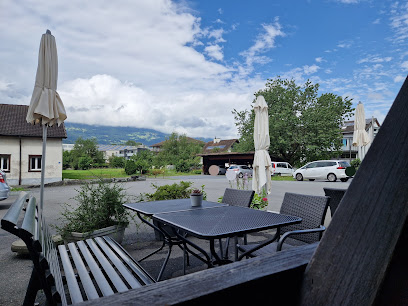
Marée
Experience exquisite vegetarian cuisine at Marée in Vaduz, where seasonal ingredients meet culinary artistry for an unforgettable dining adventure.
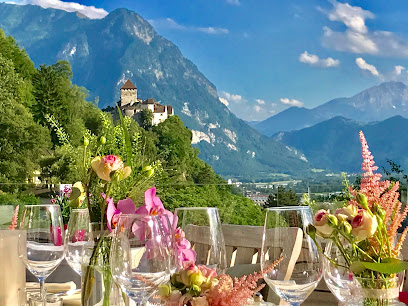
Walserhof
Discover authentic Swiss flavors at Walserhof in Malbun - home to exquisite fondue and alpine specialties in a cozy setting.
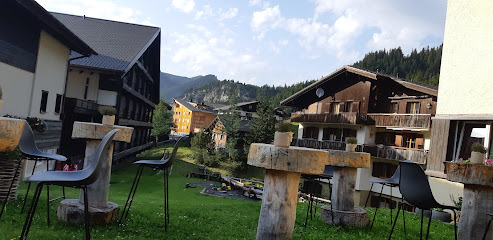
Altenbach Restaurant & Bar
Discover the exquisite flavors at Altenbach Restaurant & Bar in Vaduz - where local ingredients meet international cuisine.
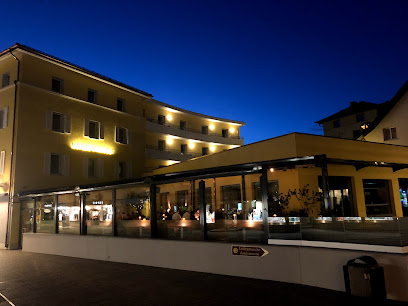
Gasthaus Linde
Discover the authentic flavors of Liechtenstein at Gasthaus Linde in Triesen – where tradition meets taste.
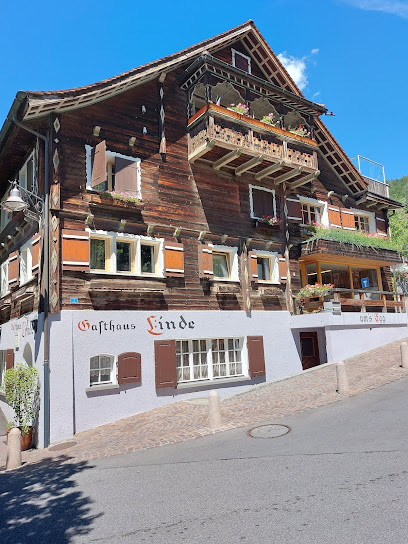
Markets, malls and hidden boutiques
Hoi Liechtenstein - Souvenir Boutique
Explore Hoi Liechtenstein - your go-to boutique for authentic souvenirs, local wines, and unique gifts in the heart of Vaduz.
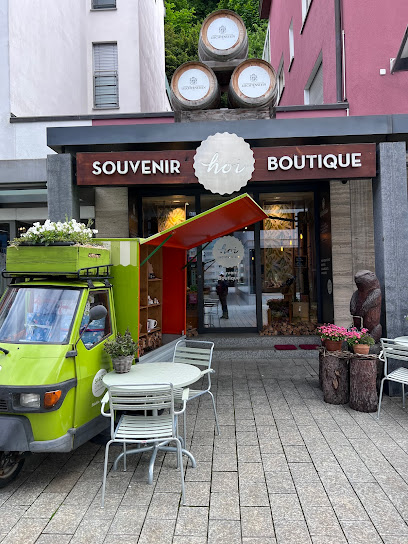
Läderach | Liechtenstein | Vaduz
Discover the exquisite world of Läderach, Liechtenstein's premier chocolate artisan, offering handcrafted delights in the heart of Vaduz.
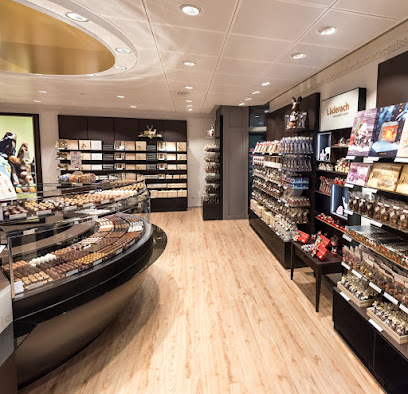
HUBER World of Watches
Explore the world of horology at HUBER World of Watches in Vaduz, where luxury meets craftsmanship in a stunning collection of timepieces.
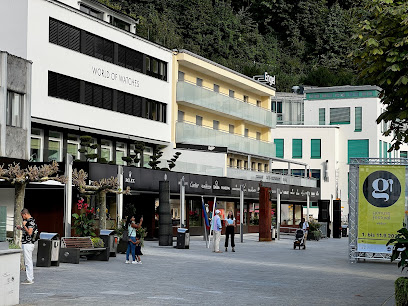
Thöny AG Schreibwaren
Explore Thöny AG Schreibwaren in Vaduz for an exquisite collection of quality stationery and unique gifts, capturing the essence of creativity and craftsmanship.
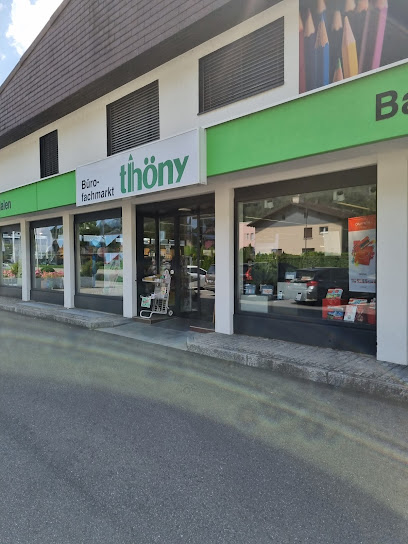
Spielplus Anstalt
Discover Spielplus Anstalt, Vaduz's enchanting toy store, where playtime dreams come to life with a diverse selection of toys and games for all ages.
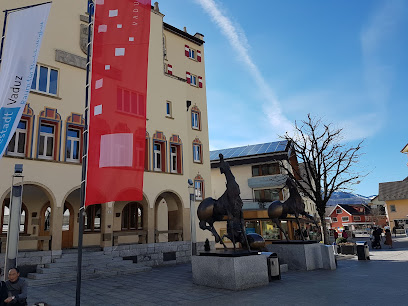
Bärgwelten
Discover the finest clothing and unique liquor selections at Bärgwelten, Vaduz's premier shopping destination for fashion enthusiasts.
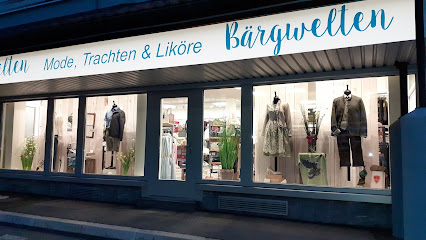
Vip's Men's Fashion
Explore stylish men's fashion with quality craftsmanship at Vip's Men's Fashion in Vaduz, the perfect shopping destination for discerning tourists.
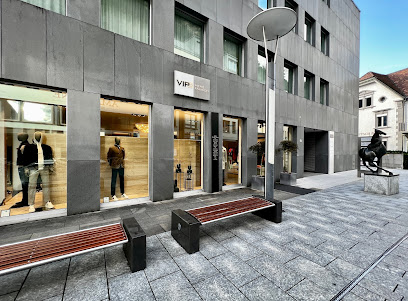
W&M Sport
Explore W&M Sport in Vaduz for top-notch gear and expert advice for all your sporting needs in Liechtenstein.
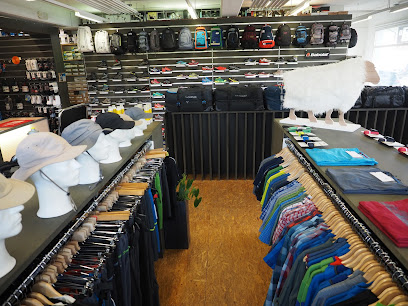
Central Plaza
Explore Central Plaza in Vaduz for unique souvenirs, fine watches, and a taste of local culture in a delightful shopping experience.
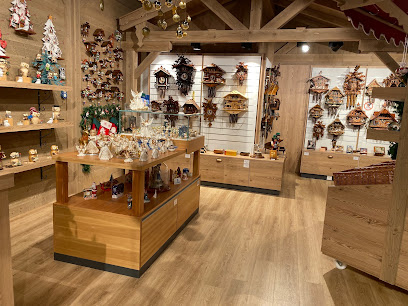
PARTYBOX Anstalt
Explore the ultimate party destination in Schaan, where costumes, fireworks, and festive supplies come together for unforgettable celebrations.
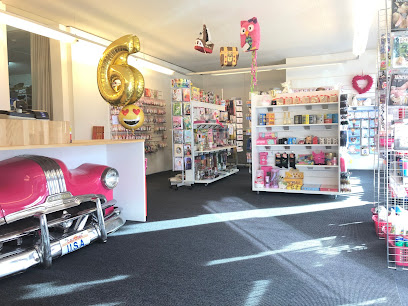
Greber AG
Explore Greber AG: A charming home goods store and coffee shop in Vaduz offering quality kitchen supplies and a cozy atmosphere.
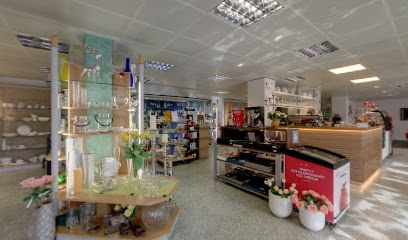
Dolce AG
Explore the sweet side of Vaduz at Dolce AG, a charming gift and chocolate shop offering unique local treats and exquisite handcrafted chocolates.
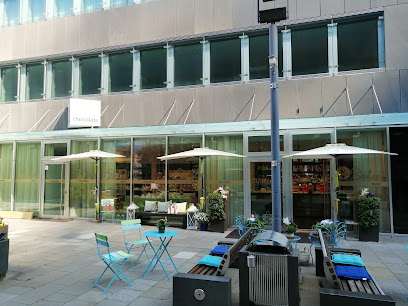
Hedihof
Explore Hedihof in Triesenberg for a taste of Liechtenstein’s rich agricultural heritage with locally sourced products and artisanal delights.
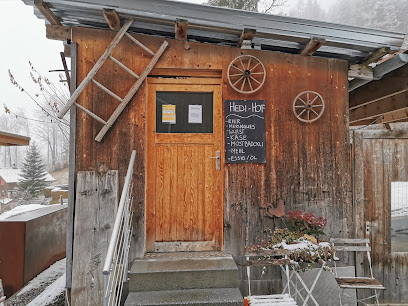
Rechsteiner sport-mode
Discover the best sports gear and outdoor equipment at Rechsteiner Sport-Mode in Vaduz, Liechtenstein, perfect for adventurers and sports lovers.
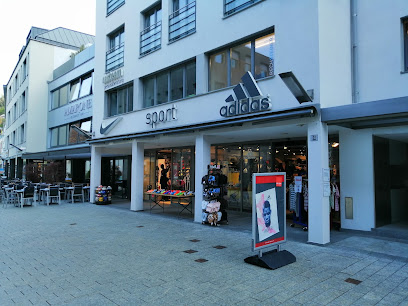
Dunja A. Sprenger - Jones Vaduz
Discover timeless elegance and unique styles at Dunja A. Sprenger in Vaduz, the premier dress store for fashion-savvy travelers.

Essential bars & hidden hideouts
PUR - Restaurant & Bar
Explore gourmet barbecue dishes and a lively atmosphere at PUR - Restaurant & Bar in Schaan, perfect for food lovers and social gatherings.
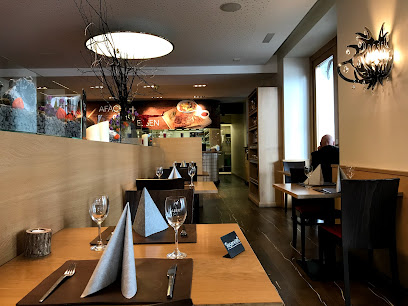
Esquire Bar.Bistro
Experience the vibrant culinary scene of Vaduz at Esquire Bar.Bistro, where local flavors meet a lively atmosphere in a chic setting.
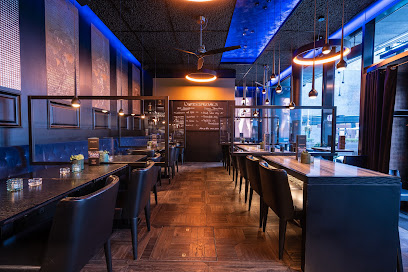
Black Pearl Bar
Discover the vibrant cocktail scene at Black Pearl Bar in Schaan, where every sip tells a story and every night is an adventure.
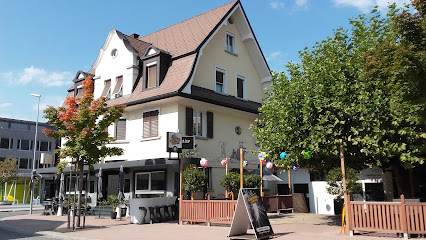
Zur Alten Eiche
Discover the charm of Zur Alten Eiche, a family-friendly restaurant in Triesen, offering exquisite cuisine and a beautiful beer garden for memorable dining experiences.
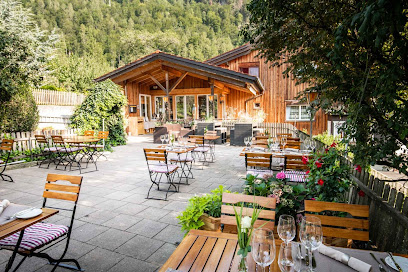
St. Martins Pub am Platz
Experience the charm of Ireland at St. Martins Pub am Platz in Eschen, where warm hospitality meets delicious cuisine and a vibrant atmosphere.
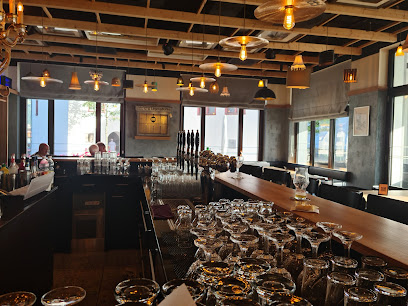
Zwei Bar
Experience the vibrant nightlife of Vaduz at Zwei Bar, where cozy ambiance meets an impressive drink selection.
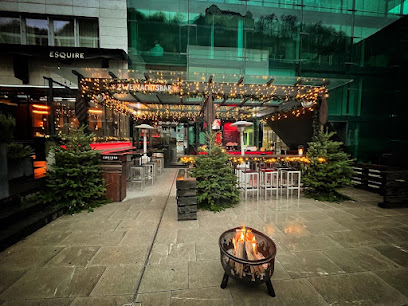
Altenbach Restaurant & Bar
Discover the flavors of Liechtenstein at Altenbach Restaurant & Bar, a top dining destination in Vaduz offering local dishes and a cozy atmosphere.
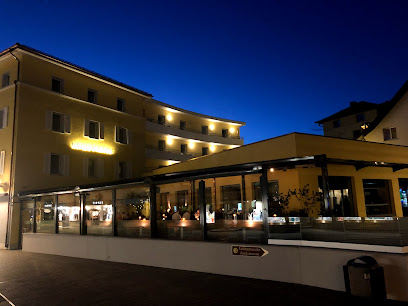
CENTRUM RESTAURANT & BAR, Vaduz
Explore the vibrant flavors of Vaduz at Centrum Restaurant & Bar, where local and international cuisine meets a lively atmosphere.
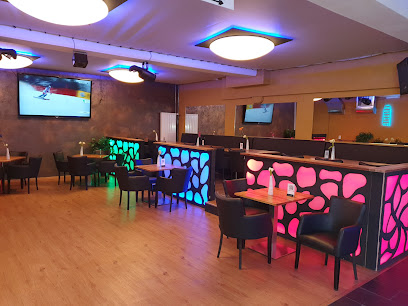
Take 5 Vaduz
Discover the vibrant nightlife of Vaduz at Take 5, where great drinks and a lively atmosphere await.
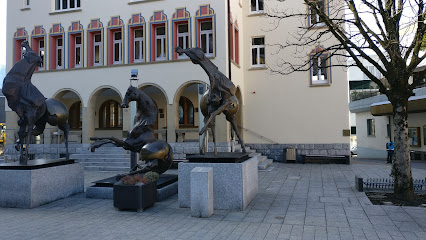
La Piazza Bar & Bistro
Discover La Piazza Bar & Bistro in Schaan, where local flavors and a cozy ambiance await tourists exploring Liechtenstein's hidden gems.
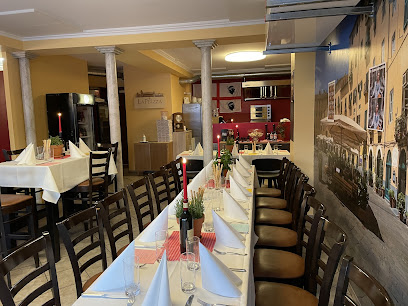
WY Weinbar
Discover a wine lover's paradise at WY Weinbar in Schaan, where exquisite selections and a cozy atmosphere await.
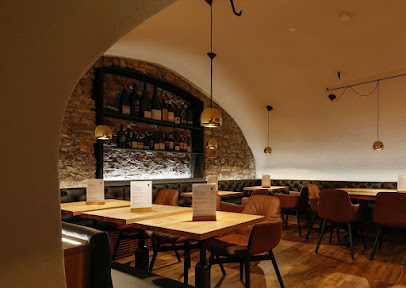
Ethno Cafe Bar
Discover Ethno Cafe Bar in Schaanwald, where local flavors meet a cozy atmosphere for an unforgettable drink experience.
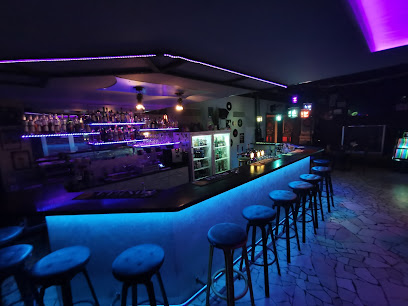
Lömagarta
Discover Lömagarta in Vaduz, a charming beer garden offering local brews and a cozy atmosphere, perfect for relaxation and socializing.
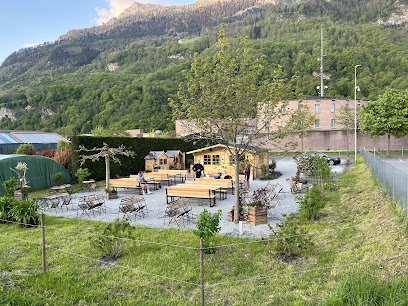
Elisas taste of Italianfood and Drinks
Experience the authentic flavors of Italy at Elisas Taste of Italianfood and Drinks, a cozy gastropub in the heart of Vaduz.
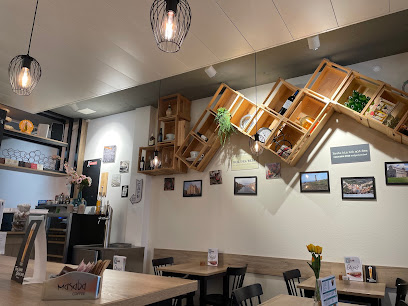
Local Phrases about Fürstensteig
-
- HelloHallo
[ha-lo] - GoodbyeTschüss
[tʃʏs] - YesJa
[ja] - NoNein
[naɪ̯n] - Please/You're welcomeBitte
[bɪtə] - Thank youDanke
[ˈdaŋkə] - Excuse me/SorryEntschuldigung
[ɛntˈʃʊldɪɡʊŋ] - How are you?Wie geht es dir?
[viː ɡeːt ɛs dɪr] - Fine. And you?Gut. Und dir?
[ɡuːt ʊnt dɪr] - Do you speak English?Sprechen Sie Englisch?
[ˈʃpʁɛçən ziː ˈɛŋlɪʃ] - I don't understandIch verstehe nicht
[ɪç fɛɐ̯ˈʃteːə nɪçt]
- HelloHallo
-
- I'd like to see the menu, pleaseIch möchte bitte die Speisekarte sehen
[ɪç mœçtə ˈbɪtə diː ˈʃpaɪ̯zəˌkaʁtə zeːən] - I don't eat meatIch esse kein Fleisch
[ɪç ˈɛsə kaɪ̯n flaɪ̯ʃ] - Cheers!Prost!
[pʁoːst] - I would like to pay, pleaseIch möchte bitte zahlen
[ɪç mœçtə ˈbɪtə ˈt͡saːlən]
- I'd like to see the menu, pleaseIch möchte bitte die Speisekarte sehen
-
- Help!Hilfe!
[ˈhɪlfə] - Go away!Geh weg!
[ɡeː vɛk] - Call the Police!Rufen Sie die Polizei!
[ˈʁuːfən ziː diː pɔˈliːt͡saɪ̯] - Call a doctor!Rufen Sie einen Arzt!
[ˈʁuːfən ziː ˈaɪ̯nən ʔaʁt͡s] - I'm lostIch habe mich verirrt
[ɪç ˈhaːbə mɪç fɛɐ̯ˈɪʁt] - I'm illIch bin krank
[ɪç bɪn kraŋk]
- Help!Hilfe!
-
- I'd like to buy...Ich möchte ... kaufen
[ɪç mœçtə ... kaʊ̯fən] - I'm just lookingIch schaue nur
[ɪç ˈʃaʊ̯ə nuːr] - How much is it?Wie viel kostet es?
[viː fiːl ˈkɔstət ɛs] - That's too expensiveDas ist zu teuer
[das ɪst tsu ˈtɔʏ̯ɐ] - Can you lower the price?Können Sie den Preis senken?
[ˈkœnən ziː deːn pʁaɪ̯s ˈzɛŋkən]
- I'd like to buy...Ich möchte ... kaufen
-
- What time is it?Wie spät ist es?
[viː ʃpɛt ɪst ɛs] - It's one o'clockEs ist ein Uhr
[ɛs ɪst aɪ̯n ʔuːɐ] - Half past (10)Halb (zehn)
[halb (t͡seːn)] - MorningMorgen
[ˈmɔʁɡən] - AfternoonNachmittag
[ˈnaχmɪˌtaːk] - EveningAbend
[ˈaːbənt] - YesterdayGestern
[ˈɡɛstɐn] - TodayHeute
[ˈhɔʏ̯tə] - TomorrowMorgen
[ˈmɔʁɡən] - 1Eins
[aɪ̯ns] - 2Zwei
[tsvaɪ̯] - 3Drei
[dʁaɪ̯] - 4Vier
[fiːɐ̯] - 5Fünf
[fʏnf] - 6Sechs
[zɛks] - 7Sieben
[ˈziːbən] - 8Acht
[axt] - 9Neun
[nɔɪ̯n] - 10Zehn
[t͡seːn]
- What time is it?Wie spät ist es?
-
- Where's a/the...?Wo ist ein/der...?
[vo ɪst aɪ̯n/deːr] - What's the address?Wie ist die Adresse?
[viː ɪst diː ˈaˌdʁɛsə] - Can you show me (on the map)?Können Sie mir zeigen (auf der Karte)?
[ˈkœnən ziː mɪr ˈt͡saɪ̯ɡən (aʊ̯f deːɐ̯ ˈkaʁtə)] - When's the next (bus)?Wann kommt der nächste (Bus)?
[van kɔmt deːɐ̯ ˈnɛkstə (bʊs)] - A ticket (to ....)Eine Fahrkarte (nach ....)
[ˈaɪ̯nə ˈfaːɐ̯kaʁtə (nax)]
- Where's a/the...?Wo ist ein/der...?
History of Fürstensteig
-
Fürstensteig, one of the most iconic mountain trails in Liechtenstein, was established in the late 19th century. The trail was constructed to offer safer and more accessible routes through the rugged terrain of the Rätikon mountain range. The name 'Fürstensteig' translates to 'Prince's Path,' reflecting its historical significance and the royal family's support in its creation.
-
The trail was initially laid out in 1898 by the Liechtenstein Alpine Club, with the support of Prince Johann II. The construction involved carving paths along steep cliffs and installing safety features such as railings and steps. The trail quickly became popular among locals and visitors, providing a challenging yet rewarding hiking experience with breathtaking views of the surrounding Alps.
-
During World War II, the Fürstensteig trail saw a decline in visitors due to the wartime restrictions and the general instability in Europe. However, the trail remained intact and was maintained by local volunteers who recognized its cultural and historical value. After the war, the trail experienced a resurgence in popularity as tourism in Liechtenstein began to recover.
-
In the latter half of the 20th century, Fürstensteig underwent several upgrades to enhance safety and accessibility. The trail now features improved railings, clearer signage, and regular maintenance, making it a safe and enjoyable experience for hikers of all skill levels. Today, Fürstensteig is a key attraction in Liechtenstein, drawing adventure enthusiasts from around the world.
-
Fürstensteig holds a special place in Liechtenstein's cultural heritage. The trail is often featured in local folklore and has inspired numerous artists and writers. It is also a symbol of Liechtenstein's commitment to preserving its natural landscapes and promoting sustainable tourism. The annual 'Fürstensteig Marathon' is a testament to the trail's enduring popularity and its role in the community.
Fürstensteig Essentials
-
Fürstensteig, located in the alpine region of Liechtenstein, is best accessed via Zurich Airport in Switzerland, approximately 120 kilometers away. From Zurich, you can take a train to Sargans, Switzerland, and then a bus to Vaduz, Liechtenstein's capital. From Vaduz, local buses or taxis can take you to the starting point of the Fürstensteig trail. Private car rentals are also an option for more flexibility.
-
Liechtenstein offers an efficient public transportation system. Buses are reliable and connect major towns and attractions. For Fürstensteig, the bus routes that stop at Gaflei are most relevant. Taxis are available but relatively expensive. Renting a car provides the most convenience, especially if you plan to explore the surrounding areas. Walking and biking are also popular ways to get around, given the country's small size.
-
The official currency in Liechtenstein is the Swiss Franc (CHF). Credit and debit cards are widely accepted in hotels, restaurants, and shops. However, it's advisable to carry some cash for smaller establishments and rural areas. ATMs are readily available in Vaduz and other larger towns.
-
Liechtenstein is one of the safest countries in the world. Crime rates are very low, and there are no specific areas in Fürstensteig that are known for targeting tourists. Nonetheless, standard safety precautions should be followed: keep an eye on personal belongings and avoid isolated areas after dark.
-
In case of emergency, dial 112 for immediate assistance, which connects you to police, fire, and medical services. Liechtenstein has well-equipped medical facilities in Vaduz and nearby Swiss cities. It's recommended to have travel insurance that covers medical emergencies and outdoor activities. For minor ailments, pharmacies are available in Vaduz and other towns.
-
Fashion: Do wear comfortable and weather-appropriate clothing, especially if you plan to hike Fürstensteig. Avoid overly casual attire in upscale restaurants. Religion: Do respect local customs when visiting religious sites; dress modestly and be quiet. Public Transport: Do validate your ticket before boarding and give up your seat to elderly passengers. Don't eat or drink on public transport. Greetings: Do greet people with a friendly 'Grüezi' or 'Hallo.' A handshake is customary. Eating & Drinking: Do try local specialties like Käsknöpfle and Ribel. Don't leave a tip directly on the table; instead, hand it to the waiter.
-
To experience Fürstensteig like a local, start your hike early in the morning to avoid crowds and enjoy the peaceful mountain atmosphere. Visit local bakeries and cafes for a taste of traditional pastries and coffee. Engage with locals; they are often friendly and willing to share insights about the region's history and culture. Don't miss the opportunity to explore nearby attractions like the Vaduz Castle and the Malbun ski resort.
Trending Landmarks in Fürstensteig
Nearby Cities to Fürstensteig
-
Things To Do in Vaduz
-
Things To Do in Schaan
-
Things To Do in Balzers
-
Things To Do in Eschen
-
Things To Do in Mauren
-
Things To Do in Gamprin
-
Things To Do in Schellenberg
-
Things To Do in Ruggell
-
Things To Do in Dornbirn
-
Things To Do in Arosa
-
Things To Do in Davos
-
Things To Do in Bregenz
-
Things To Do in St. Anton am Arlberg
-
Things To Do in St. Moritz
-
Things To Do in Zurich






